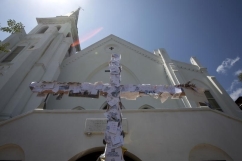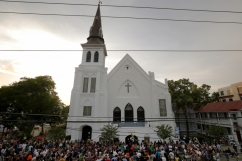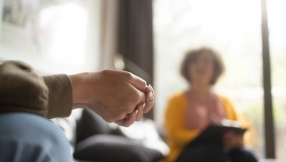Dylann Roof is guilty – not that this was ever in doubt.
Following his trial was harrowing. The details of the massacre of worshipers at the Mother Emanuel AME Church in the summer of 2015 are horrific. The gruesome details testified by witnesses during the trial include the methodical way Roof planned the killings, and that he left one member of the Bible study group alive to ensure that what he'd done would be told widely.
It's important we don't turn away from the case, however difficult it is. The appalling indifference Roof showed when describing his actions was astonishing. Not only has he shown no remorse, but the trial continued to cause pain – his mother had a heart attack while a victim was giving evidence last week.
Surely, then, the state is correct to be seeking the death penalty? In fact, that was the essence of what the court case was trying to establish. Having admitted the massacre and already been found fit to stand trial, the case was really about whether he will be given the death sentence or life in prison. Roof offered to plead guilty should the federal prosecutors choose not to pursue a death sentence, but the state refused to do so.
If ever there was a candidate for the death penalty, it is Roof. He killed defenceless worshippers and by his own admission, he was looking to start a wider racial conflict. Any extremist, terrorist, who attempts to stir up wider conflict must surely be made an example to others. In a country where racism is still pervasive, where white supremacists seem to have been emboldened by the year's political events, it's the responsibility of the authorities to pursue the strongest possible penalty – not only to remove this incredibly dangerous man from the face of the earth but to send a message to his fellow travellers that the might of the state will be brought to bear on them should they even consider copycat actions.
Yet, there is another side to the story. As highlighted by Goldie Taylor in an article for the Daily Beast, African Americans in South Carolina don't seem to want the death penalty for Roof. She points to data which show 65 per cent of black people polled want him to be given a life sentence instead. That contrasts with 64 per cent of whites who think he should be put to death.
Taylor outlines some of the possible reasons for this. "Whether because of our own distrust for a government that disproportionately imprisons African Americans" she writes, "or because of religious traditions, as a people we have turned away from an 'eye for an eye.' Retribution, many will tell you, is not justice."
The astonishing way in which some of the families of the victims responded to the shooting spree was noted around the world. Their forgiveness of Roof seemed incomprehensible to many and it allowed them to speak of their faith alongside their loss. "You took something very precious from me. I will never talk to her again. I will never, ever hold her again. But I forgive you. And have mercy on your soul," one family member told Roof just days after the killings.
Others haven't found themselves able to forgive. Sharon Risher, whose mother was killed, said that she was unable to forgive Roof yet. Despite this she doesn't support the death penalty. "I don't believe in the death penalty, even for the man who killed her. That's my conviction because of my faith," she said. "I've said the same thing all along – I don't believe as human beings that we should take away someone's life just because we have the power to do so."
The Christian conviction of many of the family members is clear. Even though they disagree over whether and when Roof should be forgiven, some family members have made clear they don't support the death penalty.
Those of us who aren't direct victims really have no place telling those who are how they should react and feel. Yet there is something incredibly profound about leaving the decision on when Roof's life should end to God. It is a powerful act of Christian witness to suggest that even though he has caused unimaginable suffering to many hundreds of people and had a devastating effect on the whole community, the death penalty could be questioned by family members.
Rather than disempowering the victims, it seems to give them even more dignity. In refusing to support ending the life of a man who so brutally ended the lives of their family members they demonstrate the mercy which Pope Francis has spent much of the last year preaching on ("Now is the time to unleash the creativity of mercy, to bring about new undertakings, the fruit of grace" he tweeted yesterday morning).
They also demonstrate in the most visceral way that life is sacred. That this sacredness which Roof is accused of so brutally violating could be honoured in him is a powerful witness. It also says that the families trust God will judge him. As we know from Scripture, it is a terrible thing to fall into the hands of the living God – something Dylann Roof will have to think about for the rest of his days, however long or short they may be.
















